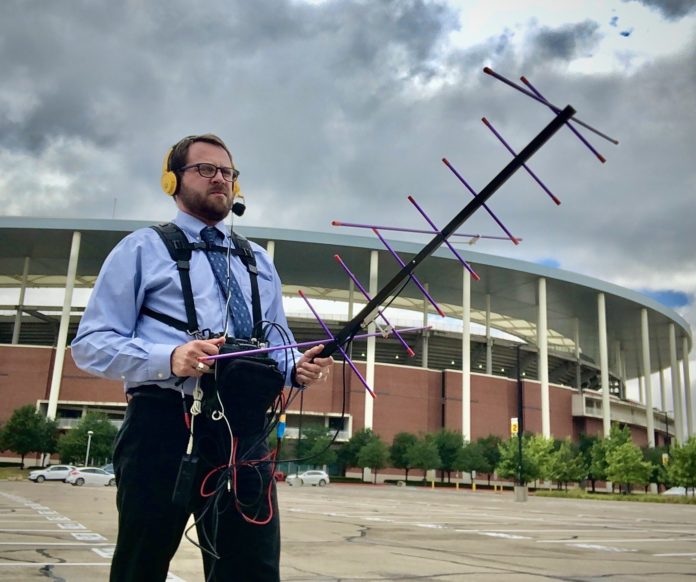
By Mariah Bennett | Staff Writer
The Amateur Radio Club returned this semester after being inactive for years. Now, the club is open to all interested students and is hosting meetings for members from 5:30 p.m. to 6:30 p.m. Tuesdays in Rogers 312.
Amateur radio, also known as ham radio, is both a hobby and a service people use to communicate across long distances. With no need for internet or a cellphone, users can go as far as across town, the other side of the world or even space and will still be able to talk to each other via radio.
“To me, amateur radio is a gateway to some different tools, to some different experimentation,” Josh Ward, adviser and senior academic consultant, said.
The club, which currently has six active members, started in the ’90s, providing educational opportunities for students on amateur radio and radio license acquisition. According to Patrick Hynan, adviser and director of technology and facilities, the club was inactive because there was a lack of members — not because there was a lack of interest.
“There was a group of individuals that had expressed interest both last year and a couple of people that have come in via Connect or found the club via Connect,” Hynan said.
According to the National Association for Amateur Radio, amateur radio not only is a fun, social and educational activity but also can serve as a lifeline during emergencies.
“One of the things amateur radio operators will typically help out with is communication for emergencies,” Hynan said. “You’ll have amateur radio operators that will come in and assist with communication during times of natural disaster … We have methods and practices we go through that can help assist.”
Ward said he uses amateur radio as a tool in other ways too.
“I play more on the experimental side,” Ward said. “I send balloons up to 80-90- 100,000 feet with GoPro cameras, and I just happen to use devices that let me track those balloons in real time. I use amateur radio as a means to facilitate some of my [other] hobbies.”
The Federal Communications Commission requires individuals to have a license in order to operate on amateur radio frequencies. Currently, the club is working to help students earn their FCC licenses so they can participate in amateur radio; students are planning to take the test in October.
Hynan said that after students obtain licenses, the club will ask members what they want to do throughout the semester. Two ideas so far are learning to be prepared for emergencies and participating in a game called “fox hunt.”
“[It’s] a little bit of hide-and-seek using the radio — using nothing but the radio to find some boundaries on campus,” Hynan said. “A student is going to go someplace on campus; let’s go find them.”
Hynan said the ultimate goal of the club is to create a space for all those interested in amateur radio. He said he hopes to expand the club on campus by including activities like balloon launches, satellite communication and long-range contact.
“The sky is the limit, literally, for what we’re doing here,” Hynan said.
According to Hynan, amateur radio operators will also have contests to hone their skills or just to meet and talk to other people with the same interest.
“Amateur radio operators will participate in a contest to try to talk to as many people as you can in a 24-hour period or try to talk to as many different schools in a weeklong period,” Hynan said. “I don’t necessarily like to get on the radio just to talk to people, but I enjoy doing some of the fun things. And if the club wanted to get involved in a contest, I would go ahead and say, ‘Sure, I’ll be able to help, [and] I’d be happy to help out.’”
Ward said students who are licensed, interested in getting a license or just intrigued about the club can get in contact through email or Connect.
“For me, it opens up a lifetime of potential learning,” Ward said. “There’s so many different ways that you can play with amateur radio.”





